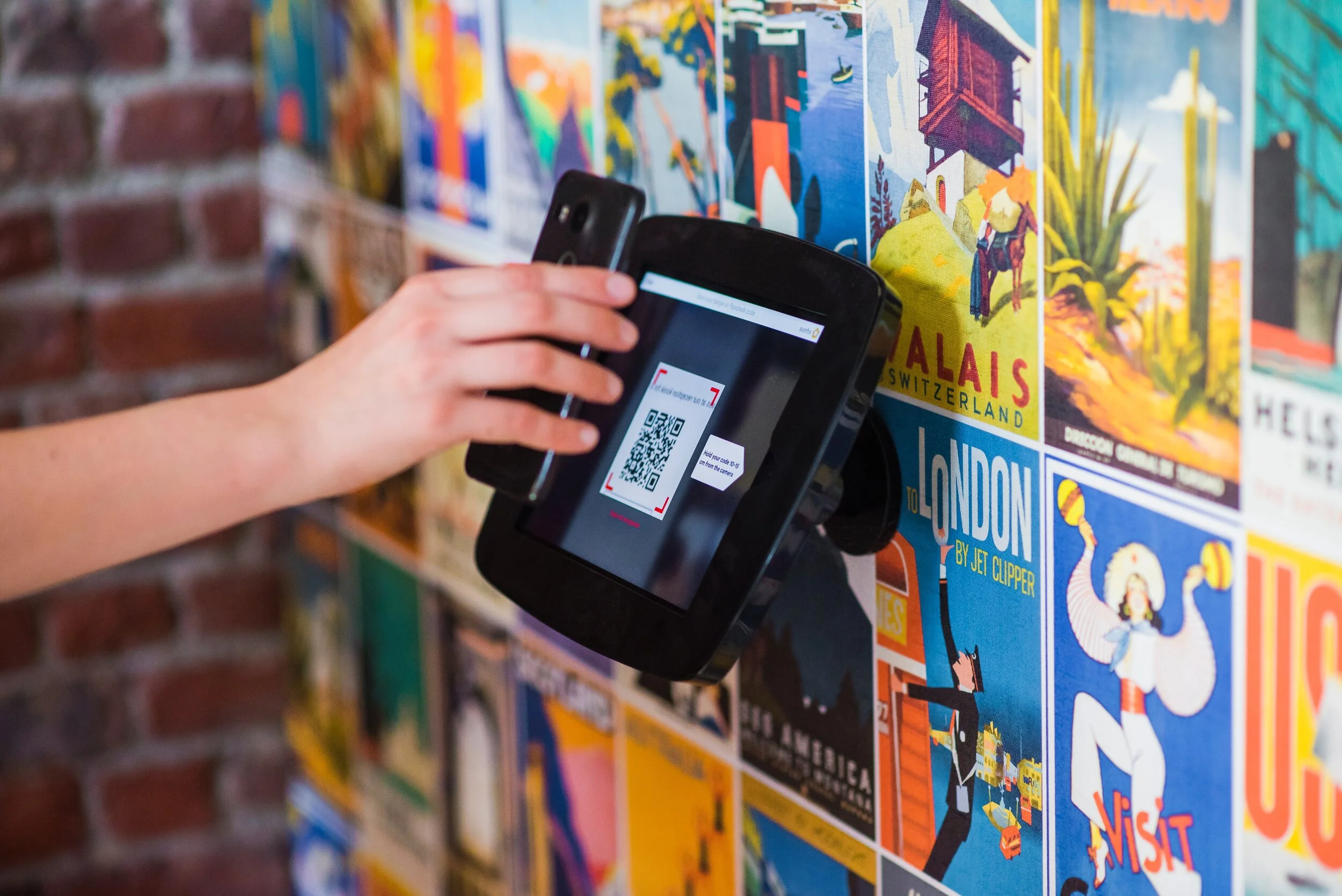The Recent Success of QR Codes
QR codes have been around for years, and yet, it’s only recently that we’ve seen such a monumental increase in usage. It makes complete sense though, as we adjust to a “new normal” in this contactless environment, it’s no wonder QR codes are really having a moment. But with all the hype around QR codes, it got us at Tech Square ATL (TSQATL) Social Club thinking – what’s the history behind this technology and why do people use or abstain from using it?
Image via Proxyclick
It’s obvious that with everything happening in the world as of late, we’ve started using more and more touchless technology, such as contactless pay systems, gesture and facial recognition devices, automatic restroom facilities, and more.
Also on this list is our old buddy, the QR code, finally getting the appreciation it deserves after being around for 26 years. That’s right – 26 YEARS!
Invented back in 1994 by Denso Wave, the QR code was initially created for production management use. Barcodes and QR codes were seen as similar things, with the main difference being that barcodes are one-dimensional and can only hold up to 20 characters, as a QR code is two-dimensional and can store 350 times the amount of information as a barcode.
So, if the QR code was created to facilitate the way we consume information on a much larger scale, why don’t we actually use it?
Some say it’s because of its obscure pattern, others believe it’s just used to sell you something, and the rest think they’re just plain useless. Historically, QR codes have been seen as a black and white square that has little or nothing to offer and is a waste of time, even though, on the contrary, they were actually created for high-speed reading and high-speed processing.
Fortunately for QR codes, in today’s world, this no longer seems to be the norm. In fact, it has proven otherwise, with restaurants and hotels using QR codes more and more, making it even easier and safer for consumers to go about their everyday lives.
In 2014, a study done by Adobe Systems showed that 26 percent of participants surveyed actually used QR codes. According to a recent survey in 2018, 9.76 million QR codes were scanned in the U.S. alone. In 2020, it’s expected that 11 million QR codes will be scanned across the country. And that’s without taking into consideration the current environment we live in, so that number will most likely be even higher!
DID YOU KNOW?
QR stands for Quick Response.
What is your view on QR codes? Do you love them or loathe them? Let us know in the comments below.
